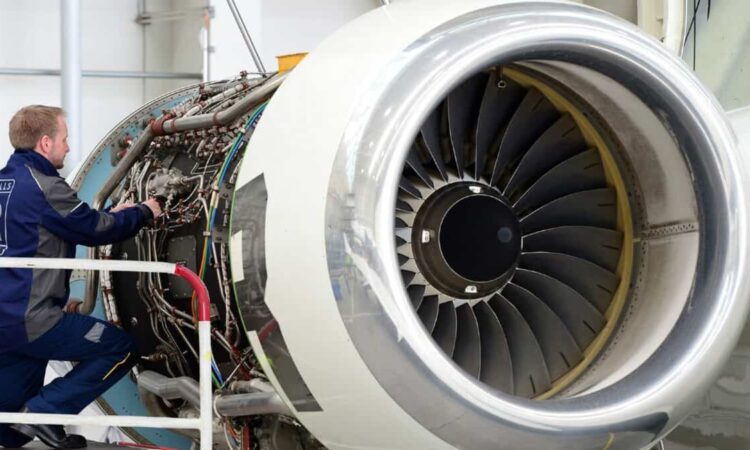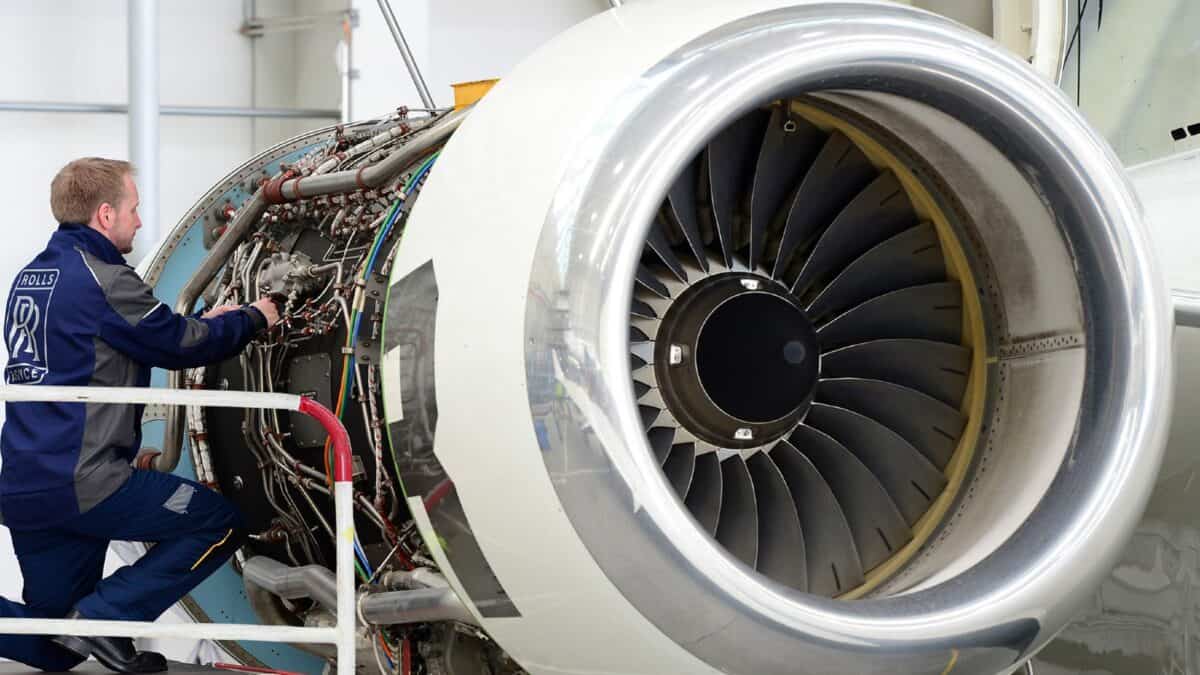

Image source: Rolls-Royce plc
Rolls-Royce (LSE:RR) shares are up 178.5% over 12 months, but down 3.1% over the past week. Of course, it’s not unusual for stocks, even those on incredible bull runs, to pull back. But this was different. Rolls fell from 432p per share to 398p. That’s quite the dip. Let’s take a closer look.
Defence pull back
Shares in defence stocks fell the week beginning 8 April as analysts suggested that the sector could be getting a little crowded — too many investors taking the same strategy. European defence stocks have done something almost unimaginable over the past two years, and that’s closing the valuation gap with their American peers.
European companies, including defence stocks, have traded at a discount to their American peers for a long time. Yes, the US stock market receives more attention than the UK and European exchanges, but this premium has traditionally reflected the fact that European countries have often shied away from their 2% NATO spending commitments.
All this changed when Russia invaded Ukraine. European countries have stepped up their defence spending and they’ve also been donating lethal aid to Ukraine.
The pullback simply reflected concerns that European defence stocks might be getting a little expensive. I’d also suggest that Lord Cameron’s meeting with Donald Trump — who says he’ll stop the war in Ukraine if elected — added more fuel to the fire.
A little overdone?
In 2023, around a quarter of Rolls-Royce’s revenues came from the defence sector. The London-headquartered firm is a leading engine maker for the military transport market and the second-largest provider of defence aero-engine products and services globally. These are big-ticket items, not like ammunition and guns.
Personally, I think the selloff of Rolls-Royce stock was potentially overdone. After all, defence is by no means the company’s largest business segment and Rolls previously suggested that the war in Ukraine didn’t have a material impact on earnings. My interpretation is that Rolls benefits from broader geopolitical tensions, and long-term defence contracts, such as the AUKUS programme.
Valuations
Of course, the above leads us to ask whether Rolls-Royce shares are overvalued. And in my opinion, they’re not. The civil aerospace giant is currently trading at 23.25 times forward earnings, and this figure drops to 19.2 in 2025, and eventually 16.2 in 2027 — that’s as far as the forecasts go.
This actually puts it at a significant discount to peers like GE Aerospace, which trades at 40 times forward earnings. GE’s price-to-earnings ratio falls to 31.4 times in 2025 and eventually 25.4 times in 2027. It’s substantially more expensive than its British peer.
The bottom line
Rolls-Royce is a company with a lot of positive factors and not many challenges right now. If I were being critical, I’d suggest the company is potentially too dependent on its civil aerospace unit as the pandemic — an exceptional circumstance — showed.
I, personally, still see Rolls-Royce as a stock with plenty of potential. It’s substantially cheaper than GE Aerospace and all three of its main business units — including defence — are booming.






